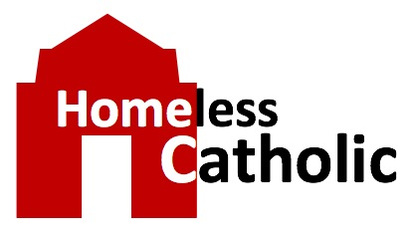My Daily Bread
Life has taught me that I am, above all, on a journey; and, while on that journey, I need food to nourish my spiritual life. My awareness of the loving presence of God has taught me to echo the words of Peter: "Lord, to whom shall we go? You have the words of eternal life." And Jesus himself has made me aware that I need and want to receive him into my heart, my mind, my spirit and my body as my daily bread.
Reflection - Bread
http://www.usccb.org/bible/readings/041416.cfm
Jesus' comment about the ancestors of the Jews eating manna in the desert is a reference to a fairly well known story which begins shortly after Moses leads the Hebrews out of slavery in Egypt.
The whole congregation of the sons of Israel murmured against Moses and Aaron in the wilderness, and said to them, "Would that we had died by the hand of the LORD in the land of Egypt, when we sat by the fleshpots and ate bread to the full; for you have brought us out into this wilderness to kill this whole assembly with hunger."
Then the LORD said to Moses, "Behold, I will rain bread from heaven for you; and the people shall go out and gather a day's portion every day."
Now the house of Israel called its name manna. (Exodus 16:2-4, 31)
This 'bread from heaven' would be a primary source of sustenance for the Chosen People. But that would eventually change.
"While the sons of Israel were encamped in Gilgal they kept the Passover. . . in the plains of Jericho. And on the next day after the Passover, on that very day, they ate of the produce of the [promised] land, unleavened cakes and parched grain. And the manna ceased on the next day, when they ate of the produce of the land; and the sons of Israel had manna no more, but ate of the fruit of the land of Canaan that year." (Joshua 5:10-12)
The manna came down from heaven each day in the morning so that the people would not die. It was their bread of life.
It was also their daily bread. It would not keep. Any portion that was not consumed on the day it was gathered would rot or become wormy by the morning of the next day.
This bread was specifically food for the journey. As we heard above, God ceased to provide it once the people reached the Promised Land.
All this happened 3200 years ago --- 1200 years before Jesus was born.
But the manna of the Exodus journey was only a foreshadowing of greater things to come. We heard the fullness and the fulfillment of God's promise this morning, from Jesus himself:
"I am the bread of life.
Your ancestors ate the manna in the desert, but they died;
this is the bread that comes down from heaven
so that one may eat it and not die.
I am the living bread that came down from heaven;
whoever eats this bread will live forever."
The manna the Hebrews received from God while traveling in the desert was a life sustaining necessity. So too, the Bread of Life which Jesus offers is a life sustaining necessity as we travel through life. Unfortunately, the imagery of 'daily bread' was lost when the church began retaining the Eucharist in a tabernacle, and along with the loss of symbolism was the diminishment of the understanding that the Eucharist is food for our journey. When we finally attain the Promised Land we will have this living bread no more.
There was a group of children receiving their First Communion at Mass this past Sunday. I happened to be in prime position to watch them nervously fidget in their special, front row seats. It readily brought to mind my own First Communion with my white suit, freshly starched for the Kansas spring heat and humidity. I remember worrying about a lot of important things. Stand up straight. Walk, don't run. Keep your hands folded. Stay with your partner as you approach the communion rail. Open your mouth wide. Be sure to stick out your tongue. In some ways it was more like going to the dentist than receiving a sacrament.
Just two verses beyond today's gospel the essence is proclaimed in unmistakeable language. "Jesus said to them, "Truly, truly, I say to you, unless you eat the flesh of the Son of man and drink his blood, you have no life in you." (John 6:53)
I know this teaching of Jesus was far from my thought and understanding so many years ago on that warm day in May at my own First Communion. Manna I could understand. Hunger and the need for food I could understand. And my equivalent of daily bread was what my mother packed in my lunchbox. Nevertheless, the Eucharist came to mean ever more to me as the years advanced and as I became ever more certain of my spiritual needs. Certainly, Scripture filled my soul in a variety of ways as I constantly learned more about God's love and his abiding presence with his people. But the depth of meaning in John's simple statement: "the Word became flesh" eluded me.
Do I know the full meaning today? Hardly!
But life has taught me that I am, above all, on a journey; and, while on that journey, I need food to nourish my spiritual life. My awareness of the loving presence of God has taught me to echo the words of Peter: "Lord, to whom shall we go? You have the words of eternal life." And Jesus himself has made me aware that I need and want to receive him into my heart, my mind, my spirit and my body as my daily bread.

